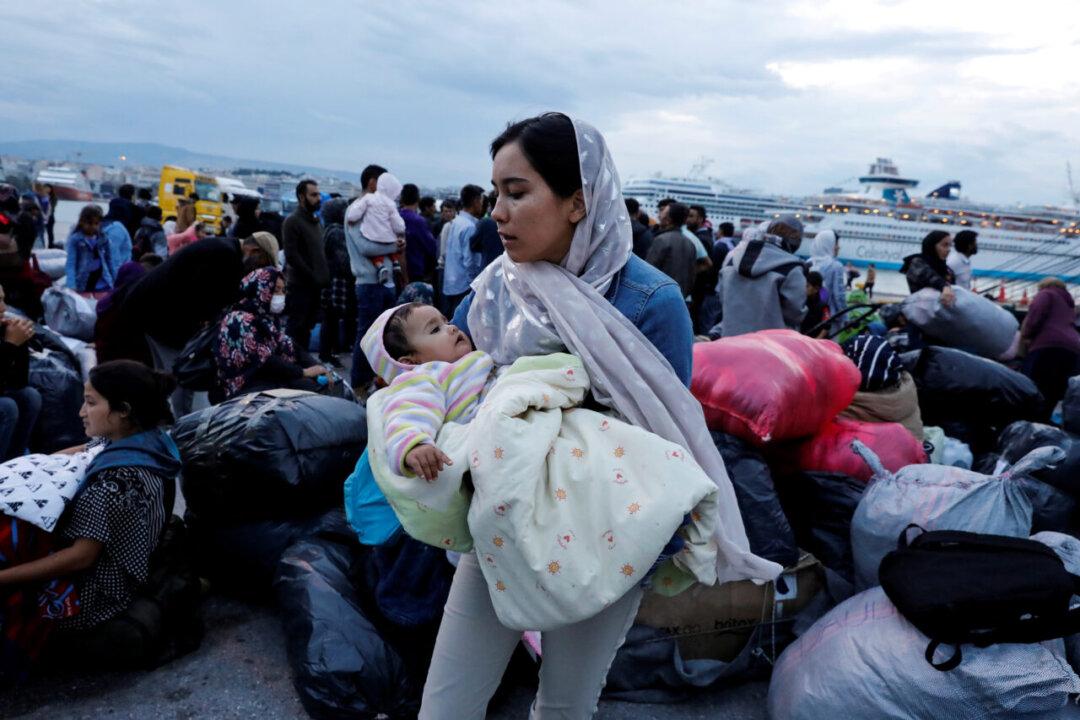Greece said on Nov. 22 it’s deploying more border guards to “shut the door” to migrants not entitled to stay, the latest sign of a hardening stance against asylum-seekers since a new surge in the number of arrivals.
Prime Minister Kyriakos Mitsotakis told parliament he had approved the hiring of 400 guards at Greece’s land border with Turkey and another 800 guards for its islands. Greece will also upgrade its sea patrolling operations, he said.





